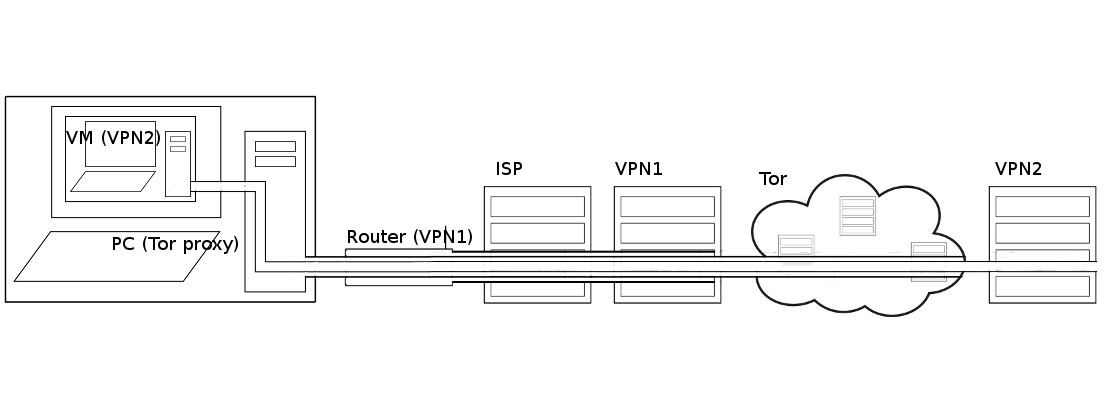Anonymising your traffic with linux
From Gender and Tech Resources
Public networks like the internet are very vulnerable to traffic analysis. Packet headers identify the IP addresses of the recipient(s) and the packet routes can rather easily be tracked, see Networking concepts.
Transmissions can be encrypted so that an attacker cannot learn the content of these transmissions, but this still reveals the fact that two parties are communicating. If for example a government official is sending encrypted data to a website of the opposition, and later that site publishes a document that was supposed to be secret, it is pretty clear what happened.
To explain how enhanced communication anonymity can be reached on a linux platform, this page gives an overview of used approaches. The 3 major anonymity networks are Tor/Onionland, I2P/Garlicland and Freenet. If you feel confused on which one is the "best" one to use the answer is simple. Use all three. Each anonymity network is designed for a different purpose. One network alone cannot do what the three can do together. Tor and I2P cannot persist information like Freenet can, Tor and Freenet can't offer the generic transports that I2P provides and Freenet doesn't handle data streaming as well as Tor and I2P. There is also no better proxy system than the Tor network.
To get to the bones and see for yourself, check out the resulting traffic after making changes, for example with wireshark. And to not run into a wall during experimentation (aaaah, nothing works), punch the necessary holes in your firewall. If you adjusted your /etc/sysctl.conf you may want to learn how to use exception options (when available) for commands, or undo some of those changes. Where necessary, these will be mentioned.
Contents
Plausible deniability
Plausible deniability in networking is about relaying certain types of broadcasts automatically in such a way that the original transmitter of a file is indistinguishable from those who are merely relaying it allows for the person who first transmitted the file to claim that his computer had merely relayed it from elsewhere, and this claim cannot be disproven without a complete decrypted log of all network connections to and from that person's computer, or ...
Plausible deniability has its limits. Recent cryptographic primitives and protocols offer a wide range of features besides confidentiality and integrity. There are many protocols that have more advanced properties such as forward secrecy, deniability or anonymity. In a phrack article a deeper look at deniability in communication (e.g. messaging) protocols appeared. One protocol that claims to offer deniability is OTR. The construction in the article can probably be extended in a quite general way. It shows the limits of deniability, especially in protocols that offer message integrity features (as OTR does). A protocol is constructed that enables each partner in a conversation to cooperate with an observing party, such that he can prove the authenticity of any message that was part of the conversation to the observing party [1].
SSH tunneling
Virtual private networks
DNS leaks
Proxying with tor
Browser bundle
Installing and configuring tor
Liberté linux, tails, whonix, freepto
Liberté linux
See making your own images.
Tails
Whonix
Freepto
Chaining
Going underground with i2p
Related
References
- ↑ Secure Function Evaluation vs. Deniability in OTR and similar protocols http://phrack.org/issues/68/14.html#article
